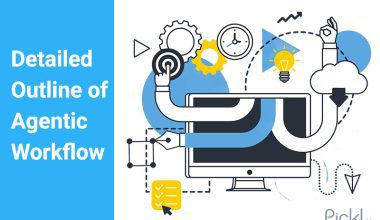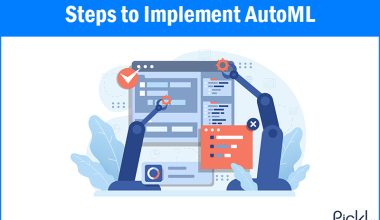Summary: Unlock the power of the cloud with Python, the top language for cloud development. This guide explores how Python’s simple syntax and powerful libraries enable automation, data processing, and building scalable applications on platforms like AWS and Azure, driving technological innovation and efficiency in every industry.
Introduction
In the digital age, the term “cloud computing” has become ubiquitous. From storing our personal photos online to powering the complex operations of global enterprises, the cloud has fundamentally transformed how we interact with technology.
It offers on-demand access to a vast pool of computing resources over the internet, eliminating the need for bulky and expensive on-premise hardware.
But what role does a programming language like Python play in this revolution? The answer is: a monumental one. This blog will explore the powerful synergy of cloud computing with Python, a combination that is driving innovation across industries.
Key Takeaways
- Python simplifies automating and managing complex cloud infrastructure tasks.
- Build scalable, high-performance cloud applications with Django and Flask.
- Leverage Python for powerful big data processing and analytics.
- Python is the leading language for cloud-based AI/Machine Learning.
- Use Python to enhance security with automation and encryption.
What is Cloud Computing?
At its core, cloud computing is the delivery of computing services—including servers, storage, databases, networking, software, and analytics—over the internet. This model allows businesses and individuals to access and manage resources on-demand, paying only for what they use.
This pay-as-you-go model offers incredible flexibility and scalability, enabling companies to adapt quickly to changing demands without the significant upfront investment in physical infrastructure. The main service models are Infrastructure as a Service (IaaS), Platform as a Service (PaaS), and Software as a Service (SaaS).
The Role of Python in Cloud Computing
Python’s simplicity, versatility, and extensive library ecosystem have made it a dominant force in the world of cloud computing. Its easy-to-learn syntax allows developers to build and deploy applications rapidly, a crucial advantage in the fast-paced cloud environment.
Furthermore, Python’s cross-platform compatibility ensures that applications can run seamlessly on various operating systems, making it an ideal choice for diverse cloud architectures.
Why Python for Cloud Development?

Python is a top choice for cloud development due to its simple, readable syntax, which speeds up building and deploying applications. Its vast ecosystem of specialized libraries for providers like AWS, Azure, and GCP simplifies automation, resource management, and the creation of scalable, high-performance cloud solutions.
Simplicity and Readability
Python’s clean and intuitive syntax allows developers to write efficient code with fewer lines, accelerating the development lifecycle.
Extensive Libraries and Frameworks
Python boasts a rich collection of libraries and frameworks specifically designed for cloud computing, such as Boto3 for Amazon Web Services (AWS), google-cloud-storage for Google Cloud Platform (GCP), and the Azure SDK for Python. These tools simplify complex tasks like automating cloud infrastructure and managing resources.
Strong Community Support
A large and active global community continuously contributes to Python’s growth, providing a wealth of resources, tutorials, and open-source libraries.
Scalability
Python’s architecture supports scaling applications to handle increasing workloads, a fundamental requirement for cloud-native applications.
Key Libraries and Frameworks for Cloud Computing with Python

Several powerful libraries and frameworks make Python for cloud computing a seamless experience:
Boto3
The AWS SDK for Python, allowing developers to interact with and manage AWS services like EC2 (Elastic Compute Cloud) and S3 (Simple Storage Service).
Google Cloud Client Libraries
A collection of libraries that provide a high-level, idiomatic way to interact with Google Cloud services.
Azure SDK for Python
Enables developers to build, deploy, and manage applications on Microsoft Azure.
Django and Flask
Popular web frameworks are used to build scalable and robust cloud-based applications and RESTful APIs.
Apache Libcloud
A standard Python library that provides a unified API for interacting with numerous cloud providers, offering flexibility and preventing vendor lock-in.
Terraform and Ansible
While not exclusively Python libraries, they are often used with Python scripts for Infrastructure as Code (IaC), allowing for automated provisioning and management of cloud infrastructure..
Security in Cloud Computing with Python
Security is a paramount concern in cloud environments, and Python provides a robust toolkit to build and enhance a strong security posture. Its versatility and extensive libraries enable developers and security professionals to move from manual, time-consuming security audits to an automated, proactive defense strategy.
By leveraging Python, organizations can create custom solutions to address the unique security challenges of the cloud.
Automating Security Monitoring
Manually checking for misconfigurations and vulnerabilities across a sprawling cloud environment is inefficient and prone to error. Python scripts can automate these crucial tasks. Using libraries like Boto3 for AWS, you can write scripts to continuously scan for security flaws, such as overly permissive access in security groups or unencrypted S3 buckets.
Implementing Secure Authentication
Strong authentication is the first line of defense. Python frameworks like Flask and Django have built-in support for secure user authentication, including password hashing and token-based systems. For more advanced scenarios, libraries like PyJWT allow for the creation and verification of JSON Web Tokens, a standard method for securing API communications.
Data Encryption
Protecting data, both when it’s stored (at rest) and when it’s being transmitted (in transit), is non-negotiable. Python offers powerful cryptographic libraries like cryptography and PyCryptodome that provide a wide range of algorithms, including robust standards like AES (Advanced Encryption Standard). You can use these libraries to encrypt sensitive information before it’s ever uploaded to cloud storage.
Incident Response
When a security incident occurs, speed is of the essence. Python is an invaluable tool for automating incident response workflows. Scripts can be developed to automatically react to a security alert.
For example, a script could isolate a potentially compromised virtual machine by changing its network access rules, take a snapshot of its memory for forensic analysis, and notify the security team via platforms like Slack or email.
Key Areas Where Python is Used in Cloud Computing
Python’s versatility, simplicity, and extensive ecosystem of libraries have made it an indispensable tool in the world of cloud computing. Its ability to seamlessly integrate with major cloud platforms has solidified its role in driving cloud innovation. The application of cloud computing with Python is vast and varied. Some of the key areas include:
Cloud Automation and Scripting
Python is essential for automating cloud infrastructure management. Using Infrastructure as Code (IaC) tools, developers write scripts to programmatically provision, configure, and manage cloud resources. This eliminates manual tasks, reduces human error, and ensures consistent, repeatable deployments across platforms like AWS, Azure, and Google Cloud.
Cloud-Native Application and Web Development
Developers use powerful Python frameworks like Django and Flask to build scalable, resilient web applications and APIs directly on the cloud. These applications leverage the cloud’s elasticity to handle variable traffic and workloads efficiently, making Python a top choice for creating modern, high-performance services and microservices.
Data Engineering, Processing, and Analytics
Python is the go-to language for big data in the cloud. Using libraries like Pandas and Dask, engineers build robust ETL pipelines to process massive datasets stored in services like AWS S3 or Google Cloud Storage. It powers large-scale analytics and data warehousing, turning raw data into valuable insights.
Machine Learning and Artificial Intelligence
The combination of Python and the cloud is the engine of modern AI. Python’s rich libraries, such as TensorFlow and PyTorch, are used to build and train complex models. Cloud platforms provide the massive computational power needed for these tasks, enabling the deployment of sophisticated AI solutions at scale.
Frequently Asked Questions
Is Python good for cloud computing?
Yes, Python is an excellent choice for cloud computing. Its simplicity, extensive libraries, and seamless integration with major cloud providers like AWS, Azure, and Google Cloud make it ideal for automation, data processing, and building scalable cloud-native applications.
How do I start cloud computing with Python?
To begin, install Python and the specific cloud provider’s SDK (e.g., Boto3 for AWS). Utilize virtual environments to manage dependencies. Then, you can start by writing simple scripts to interact with cloud services, such as creating a storage bucket or launching a virtual machine.
What is cloud computing in Python?
Cloud computing with Python refers to using the Python programming language to develop, deploy, and manage applications and services on cloud platforms. This involves leveraging Python’s libraries and frameworks to interact with and control cloud resources programmatically, enabling automation and scalability.
Who should learn Python for cloud computing?
Developers, system administrators, DevOps engineers, and data scientists can all benefit from learning Python for cloud computing. It’s also a valuable skill for anyone looking to pursue a data science internship or a career in cloud technologies, as it opens up a wide range of opportunities in the tech industry.




